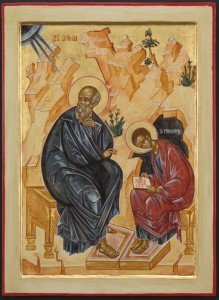 Let us now consider 3 John, almost as short as 2 John. Like 2 John, the sender is “the elder,” but the recipient is specified as a man named “Gaius.” Though the author is the same, there is no reason to think that this letter was sent to the same community as 2 John.
Let us now consider 3 John, almost as short as 2 John. Like 2 John, the sender is “the elder,” but the recipient is specified as a man named “Gaius.” Though the author is the same, there is no reason to think that this letter was sent to the same community as 2 John.
The letter commends Gaius and, of course, his community, for showing hospitality to Christians: “the friends” or “brothers and sisters”, even though they were strangers. It goes on to condemn an unknown Christian by the name of “Diotrephes” for refusing the elder’s authority, not providing hospitality to the friends and also spreading false charges. It continues with a general exhortation: Beloved, do not imitate what is evil but imitate what is good. Whoever does good is from God; whoever does evil has not seen God. It concludes with a commendation of another otherwise unknown early Christian named “Demetrius,” who is presumably a teacher. They are to trust him. Its closing echoes the end of 2 John. The elder declares, “I have much to write to you, but I would rather not write with pen and ink; instead I hope to see you soon, and we will talk together “face to face.”
Despite its brevity and the inadequacy of its details, 3 John furnishes an extremely important insight into the problem of authority and influence in Christianity at the end of the first century.
Since the three letters of John are so very short, I would strongly urge all of my readers to read them and then reflect upon them.
Again this letter, like other letters, even those by St. Paul, give us an insight into the struggle that early Christianity went through before it was established. Since there was no central authority to guide the understanding of what Jesus taught and how He lived, there were differences of opinion. As one might guess, many of the early Christian teachers were people who embraced Judaism and saw the teaching of Jesus as a refinement and reform of Judaism since it had become quite ritualistic and rule-bound instead of spiritual. We understand this from the way that Jesus addressed the Pharisees, Scribes and other official/clerical persons. Jesus, as the prophets before Him, felt that the “spirit” of the religion had been subverted and had become a set of rules and regulations without any sense
